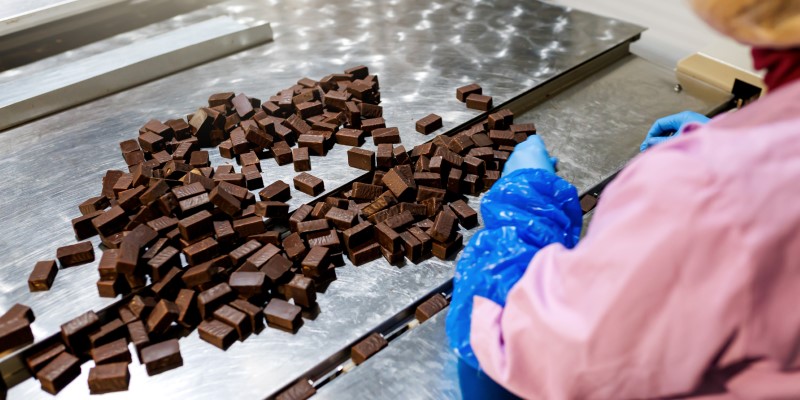Sustainable Chocolate: Guilt-Free Treats For Conscious Consumers
In a world increasingly aware of environmental issues and ethical practices, the chocolate industry has begun to pivot towards sustainability. This shift offers chocolate lovers a guilt-free way to indulge in their favourite treats while supporting practices that benefit both the planet and communities involved in cocoa production. Sustainable chocolate focuses on responsible sourcing, fair trade practices, and environmentally friendly production methods, making it easier for consumers to enjoy their sweet cravings with a clear conscience. Let's delve deeper into what sustainable chocolate means and why it matters.
Understanding Sustainable Chocolate: What Does It Mean?
Sustainable chocolate is not just a marketing buzzword; it encompasses a range of practices to create a more equitable and environmentally sound chocolate industry. At its core, sustainable chocolate production seeks to address the significant challenges cocoa farmers face and the ecosystems in which they work.

Fair Trade Practices
Sustainable chocolate emphasizes fair trade practices, ensuring farmers receive fair prices for their cocoa, which supports their livelihoods and community investments. The Fair Trade movement promotes transparency, empowers smallholder farmers, and guarantees minimum prices with additional premiums for development projects.
Organic Farming Methods
Sustainable chocolate frequently utilizes organic farming methods that prioritize ecological balance and minimize harmful chemicals. Organic cocoa farming enhances biodiversity, improves soil health, and produces healthier chocolate products for consumers, free from synthetic pesticides and fertilizers, benefiting farmers and consumers.
Biodiversity And Ecosystem Preservation
Sustainable chocolate production values biodiversity by encouraging agroforestry, where cocoa trees grow alongside other crops. This practice improves soil health, reduces erosion, and creates wildlife habitats, preserving local ecosystems and fostering resilient agricultural systems against climate change.
The Environmental Impact Of Conventional Chocolate Production
The conventional chocolate industry has been linked to several environmental issues, primarily due to unsustainable farming practices and the demand for large-scale cocoa production. These challenges have dire consequences for ecosystems and communities.
Deforestation And Habitat Loss
Conventional chocolate production significantly impacts the environment through deforestation, as rainforests are cleared for cocoa plantations. This habitat loss contributes to species decline, increases greenhouse gas emissions, disrupts ecosystems, and leads to soil erosion and environmental degradation.
Child Labor And Exploitation
Another pressing concern in the chocolate industry is the prevalence of child labour and exploitation in cocoa farming. Many cocoa farmers live in poverty, and children are often forced to work on plantations instead of attending school. This perpetuates a cycle of poverty and hinders community development. Sustainable chocolate initiatives aim to combat these issues by supporting ethical practices that prioritize the welfare of farmers and their families.

Benefits Of Choosing Sustainable Chocolate
Opting for sustainable chocolate offers numerous benefits for consumers and the environment. Choosing sustainable options makes you part of a more significant movement prioritizing ethical and eco-friendly practices.
Supporting Smallholder Farmers
Purchasing sustainable chocolate helps support smallholder farmers who often struggle to make a living from cocoa production. By choosing brands that prioritize fair trade and sustainable sourcing, consumers can ensure that their money goes directly to those who grow the cocoa. This support can mean better living circumstances and access to healthcare and education for farmers and their families.
Healthier Products
Sustainable chocolate tends to be made with higher-quality ingredients. Many sustainable manufacturers prioritize organic cultivation, producing chocolate without dangerous chemicals and additives. This benefits the environment and leads to a healthier product for consumers. With less reliance on artificial ingredients, sustainable chocolate often has a richer and more authentic flavour.
Environmental Preservation
By choosing sustainable chocolate, consumers actively contribute to environmental preservation efforts. Sustainable practices, such as agroforestry and organic farming, help protect biodiversity, reduce deforestation, and promote healthier ecosystems. In other words, each taste of chocolate produced sustainably contributes to a more sustainable Earth.

How To Identify And Support Sustainable Chocolate Brands
With the increasing popularity of sustainable chocolate, it's essential to identify brands that genuinely prioritize sustainability. Here are some tips for conscious consumers looking to make informed choices.
Look For Certifications
One of the most reliable ways to identify sustainable chocolate is by looking for certifications such as Fair Trade, Rainforest Alliance, or USDA Organic. These certifications ensure that the chocolate has been produced according to ethical and environmental standards. Familiarizing yourself with these labels can help you make more informed purchasing decisions.

Research Brand Practices
Research the brands you purchase chocolate from, focusing on their sourcing practices and farmer partnerships. Check their websites and social media for sustainability initiatives, supply chain transparency, and their commitment to ethical practices that positively impact communities and the environment.
Support Local And Small Producers
In addition to more prominent sustainable brands, pay attention to local and small-scale chocolate producers. Many artisanal chocolate makers focus on sustainability, often sourcing their cocoa directly from farmers. Supporting these businesses not only contributes to regional economies but also fosters a closer connection between consumers and the source of their chocolate.
Consider Ingredients
When shopping for chocolate, pay attention to the ingredient list. Sustainable chocolate is often made with high-quality, organic ingredients. Look for chocolate that lists cocoa as the first ingredient and avoids artificial flavours, preservatives, and excessive sugar. Many sustainable brands also prioritize sourcing additional ingredients from sustainable sources, such as sugar and milk.
Engage With Your Community
Share your knowledge about sustainable chocolate with friends and family. Please encourage them to make conscious choices when purchasing chocolate and support brands that align with sustainable practices. Community engagement can amplify the impact of sustainable consumption and foster a culture of responsibility around food choices.

Conclusion
Conscious customers now have the chance to indulge in their favourite delights without sacrificing their morals, thanks to sustainable chocolate. By understanding the principles behind sustainable chocolate, recognizing the environmental impact of conventional practices, and choosing brands that prioritize ethical sourcing, consumers can play a vital role in reshaping the chocolate industry. As you indulge in your next chocolate craving, remember that every bite can contribute to a sweeter future for the planet and its people. Embrace the joy of guilt-free treats and be a part of the positive change in the chocolate industry.